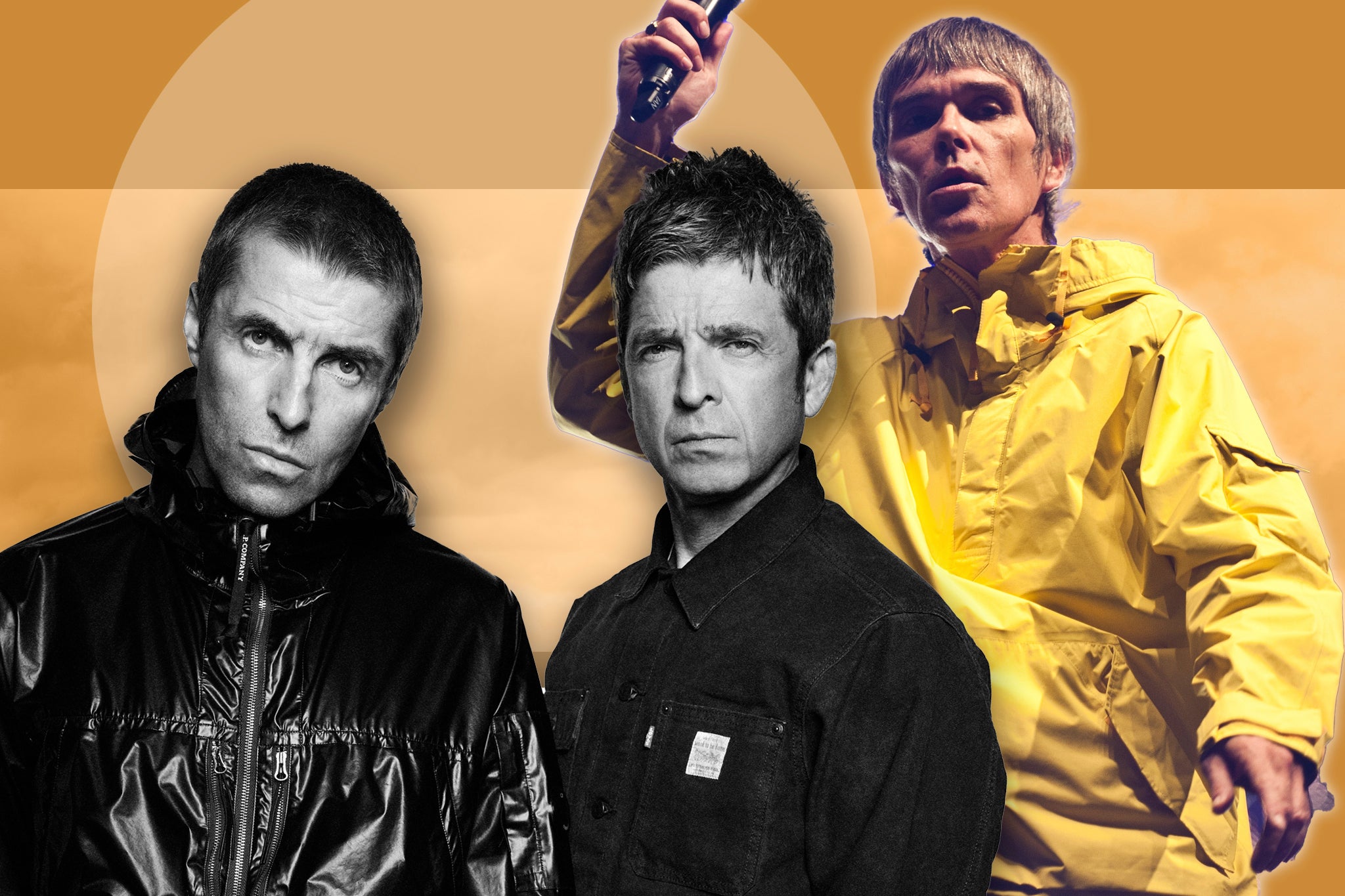If Adolescence has taught me anything, it’s that we’re entering a golden era of masculinity
Far from being hopeless about the ‘state of men’ and toxicity among boys, Josh Burt reflects on what he lived through during the Eighties and Nineties and why he thinks it’s all going right direction…


If history has just one lesson, it’s that all empires fall. The Roman one, the Byzantine one, the British one. They all go down eventually (generally after a few hundred years, give or take), and they never do it quietly. It’s usually a noisy and chaotic affair marked by reckless indulgence and self-destruction – a kind of mad, combustible endgame. Which makes you wonder: after years beneath its shadow, are we finally witnessing the fall of “toxic masculinity”?
Because think about it: reckless indulgence, self-destruction. In the last few months, we’ve seen all manner of erratic male behaviour from supposed “leaders”, whether it’s Elon Musk hitting the kind of societal bum notes that make Tesla sales nosedive by more than 40 per cent in Europe, or the Trump 2.0 administration having their embarrassing group messages – brimming with cyber peacocking – outed and aired for everyone to cringe at.
While it might feel like we’re having to wait patiently for the bully-boy Trump era to get its comeuppance, we’ve witnessed a satisfying serving of just desserts for a number of self-styled silverbacks over the last few years. From Harvey Weinstein to, more recently, Puff Daddy, these are men who at one point most likely considered themselves too powerful, too untouchable to be stopped. However, they have had to swap their hot tubs for prison cells and cold group showers. There are even hints that time will soon be called on the dangerous online misogynist Andrew Tate.
On the one hand, this is great news for society moving forward. But on the other hand, it’s a terrifying prospect in the short term. Because, just like how an abuser is at his most dangerous when a partner decides to leave him, the intense dark currents of toxicity we are currently witnessing may be the last flail of the dinosaur’s tail.
But, despite the narrative told so eloquently in Netflix’s Adolescence, I also find myself wondering if this era of toxic masculinity – embodied by outward aggression, competition, bullying, and misogyny – is really the worst one we have lived through. As a kid in the 1980s, I have vivid memories of skinheads and football hooligans, subcultures that were built on and thrived off violence.
Just being at school could be intimidating. You had sadistic teachers (for a while, I’d feign illness every Tuesday to avoid the maniac teaching woodwork), and the playground at lunch break would often devolve into scenes from Platoon, with bullies running rampant and homophobic jibes flying around – shouts of “poof” or “bent” if you happened to cry because you’d literally just been punched in the stomach. If you were very unlucky, you might have had a gym coach who would even lead the march.
In the 1990s, toxic masculinity shapeshifted. I was a university student in a full Kappa tracksuit, sporting little sideburns (a strong look back then, as it goes), fully embracing the sartorial side of “lad culture”, which came with a different – and in many ways more harmful – kind of toxicity. Thanks to magazines like Loaded and FHM (where I worked for a while later in the decade), men were suddenly celebrated for being unheroic, for not being flashy.
But through a subversion of the norm – a dismantling of certain stuffy male tropes – it became a type of male culture that was even less forgiving for women, who were increasingly objectified and expected to be “up for it”, willing to be cajoled into bed. I remember talking to a girl from my seminar group and being asked if I’d “nailed it yet?”, which pretty much sums up the state of things. (I hadn’t, and didn’t.) I had the tracksuit and the trainers, but I wasn’t much of a shagger.
And that’s the thing, really. At a certain point, what it was to be a man became murkier and murkier. The selfless stereotypes of old-fashioned stoicism embodied by our grandads – who may have been to war, then gone about their business as “breadwinners” (which you could argue is equally toxic, but that’s another story) – ultimately made way for a more selfish iteration, built on entitlement, extreme competitiveness, and shouting the loudest to get what you want.

“If you look at what we were promoting as the way men should be back in the 1940s, Fifties, and Sixties, it’s much more community-oriented, much more of a ‘good guy’ model,” says Dr Andrew P Smiler, author of Is Masculinity Toxic? A Primer for the 21st Century. “But by the time we get to the Eighties and Nineties, we’re talking about ‘real men’, not ‘good guys’. You could certainly look at the world today and say we’re paying the price for a system that’s not only favoured men over women but has also favoured certain men over lots of other men, which is an area we don’t often address.”
This definitely rings true for me in the work environment too. Who hasn’t been in a meeting where some guy with the demeanour of a giant toddler has talked over everyone else and belittled those around him? I’ve seen men fall apart at work, their entire bodies practically convulsing with panic. But for many men, there is nowhere to go when they don’t “fit the stereotype” of being a “boss man”.
While women can call out sexism, it’s harder for a man to call out a bully. Being a softer guy is not a protected characteristic, so there are many great men who fall foul of the lore of the work jungle, where only the most aggressive survive – even though they might be worse at their jobs.

There was a time when it honestly felt like men were being stubbornly shoehorned into fitting the alpha standard, as though they were the ones we should be aspiring towards. Over the years, I’ve worked with these people. I’ve known predatory alphas whose abhorrent behaviour has been written off as them being “a bit handsy” with female colleagues; I’ve been in offices where sexual abuse by people at the top has been treated as gossip.
You only need to look at the statistics to get a sense of the damage toxic masculinity has done to other men: the higher suicide rates among men (I lost a close friend to suicide shortly after he lost his job), the increased incidences of violence borne from a terrible frustration of simply not being allowed to be the man you are meant to be.
Recently, we have become more and more infatuated with totems of fruitfulness that can be exhibited online in social feeds – cars, watches, Andrew Tate with his cigars (which a psychologist would no doubt have a field day with). I’m ancient now (not a million miles from 50) and have a 10-year-old son to navigate through all this. But if I am honest, everything Tate stands for is already looking incredibly sad and old-fashioned.

I have hopes that my son and his friends can already see that these things ultimately don’t matter. That you’re not “winning” at life because you get paid a lot of money. That your lavish timepiece doesn’t reflect who you really are or how successful you are at being a man. Suddenly, it feels like a lot of us are on the same page. The recent scenes of Made in Chelsea’s Jamie Laing finishing an Ultramarathon Challenge and breaking down in tears rather than exhibiting his “manliness”, to the cultural success of politicians like Rory Stewart, the brilliant Freddie Flintoff in Field of Dreams, and even the hipster “soft-boy” trend, all point to a place where it’s just not cool to be a “big man” anymore. Leave that to the posturing saddos like Trump, Musk, and Putin. To the rest of us, it just looks a bit weird.
Which all points to the fact that, despite the many strong men beating their chests on the world stage right now, the alpha male is in its last hurrah; that toxicity has reached the point of combustion. “One of my favourite definitions of masculinity is that it’s simply what a culture expects of its men,” says Smiler, “and that changes over time and from place to place. So the question is, what kind of people do we now want men to be?”
Far from feeling hopeless, I have high hopes for what the answer is going to be.
Join our commenting forum
Join thought-provoking conversations, follow other Independent readers and see their replies
Comments

Bookmark popover
Removed from bookmarks